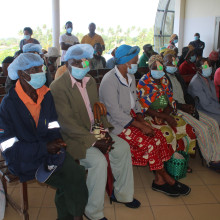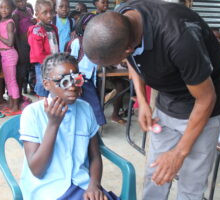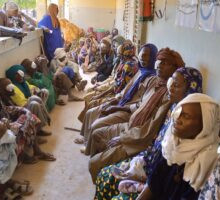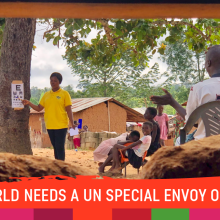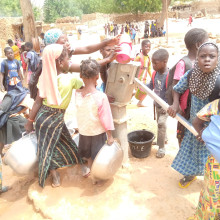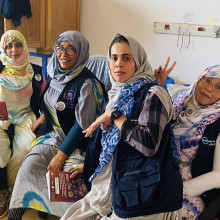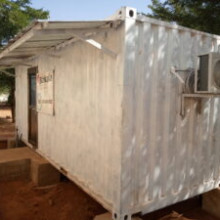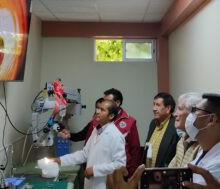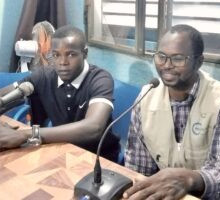Blindness caused by cataracts is not sufficiently controlled in Inhambane province, the number of accumulated cases is very high, and surgical coverage is very low. The highest prevalence of blindness affects women: 7% of women over 50 suffer from it, compared to 5.3% of men. Suppose we add to this problem that the economic and social […]
The implementation of screening activities in schools is fundamentally aimed toward the timely detection of cases of low visual acuity and the prevention and treatment of ophthalmological diseases to prevent them from leading to possible blindness. On this occasion, the Mabote district of Mozambique was indicated by the Provincial Directorate of Education for Eyes of […]
In the last ten years, the climate of war and terrible insecurity in Mali have caused a massive displacement of people from different communities toward Douentza, the district’s capital. This fact implies an exorbitant increase in eye care needs that the local health center cannot cover. For this reason, Eyes of the world regularly carries […]
Service-learning activities in secondary schools seek to integrate community service into education. It is an educational proposal that combines learning processes and service to the community in a single project. The initiatives are based on the student’s learning about the real needs of their environment, human rights, or the culture of peace to enrich their […]
The Eyes of the world Foundation, a member of the IAPB (International Agency for the Prevention of Blindness), has supported the initiative of this organisation to send a letter to the United Nations Secretary General, António Guterres, in which more than 60 countries and more than 150 global eye health organisations have requested the appointment […]
On March 22, World Water Day, Eyes of the world starts a yearlong campaign on its social media to bring awareness about the incidence of climate change on eye health and the need to take measures to reduce their harmful effects. The impact of climate change in eye health is undeniable and can be seen […]
The defense of universal health coverage claims that everyone has the right to health and to receive quality eye care when and where they need it, without having to go through additional financial difficulties. For this reason, one of the objectives of Eyes of the world is to eliminate the barriers that hinder access to […]
The northern regions of Mali have very few resources, both human and material, to cover eye care needs. And the location of the Sominé Dolo Hospital in Mopti, located between the northern and southern regions of the country, makes its ophthalmology services essential to caring for thousands of people. It is an area where the […]
A WetLab is an experimental operating room that assists ophthalmologists in surgical training for cataract surgeries. Following the objective of training and strengthening the capacities of local Bolivian professionals, the Eyes of the world Foundation has accompanied the Government of the Department of Oruro in the implementation and leadership of this Ophthalmological Surgical Training Center […]
One of the media which facilitates the mass dissemination of awareness and prevention messages in Mali is undoubtedly the radio. Eyes of the world has signed collaboration agreements with eight Malian radio stations to broadcast awareness and prevention campaigns on the main eye diseases, using local languages. In December, specific informative programmes on trachoma disease […]
